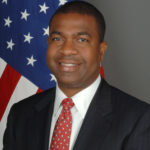The Kremlin-backed Internet Research Agency used fake social-media accounts before and after the 2016 U.S. election to collect sensitive personal information on Americans, a Wall Street Journal investigation has found.
All the Facebook account Black4Black asked for was some personal information about Ajah Hales and other Cleveland-area small-business owners. In exchange, she was told her cosmetics company, and her fellow African-American entrepreneurs, would receive free promotion on social media and in a new and influential directory of black-owned businesses, the Journal’s Shelby Holliday and Rob Barry write:
That was in early 2017. It wasn’t until recently, after being contacted by The Wall Street Journal, that Ms. Hales would learn that Black4Black and “partner” groups, including BlackMattersUS, were among hundreds of Facebook and Instagram accounts set up by a pro-Kremlin propaganda agency to meddle in American politics, Facebook records show.
The fake directory is one example of the elaborate schemes that Russian “trolls” have pursued to try to collect personal and business information from Americans, the Journal has found. Leveraging social media, Russians have collected data by peddling niche business directories, convincing activists to sign petitions and bankrolling self-defense training classes in return for student information.
“Russian intelligence services…can sit back and collect from thousands of miles away,” said Leo Taddeo, chief information security officer of Cyxtera Technologies and the former special agent in charge of the Federal Bureau of Investigation’s New York Cyber Division. “The more they know about us, and what we care about, the better they can sharpen their influence campaigns.”
The future of political warfare

 Facing an evolving asymmetric political warfare threat from Russia and other actors, the West needs an effective “whole-of-society” response including better information sharing, greater investment in relevant research, and a deterrence strategy against political warfare, analysts Alina Polyakova (left) and Spencer Phipps Boyer (right) argue in The Future of Political Warfare, the fourth in a series of papers for the Brookings – Robert Bosch Foundation Transatlantic Initiative (BBTI).
Facing an evolving asymmetric political warfare threat from Russia and other actors, the West needs an effective “whole-of-society” response including better information sharing, greater investment in relevant research, and a deterrence strategy against political warfare, analysts Alina Polyakova (left) and Spencer Phipps Boyer (right) argue in The Future of Political Warfare, the fourth in a series of papers for the Brookings – Robert Bosch Foundation Transatlantic Initiative (BBTI).
A reactive policy approach that simply plugs the gaps of existing vulnerabilities, or responds on a case-by-case basis, will fail. The threat is broader than any single nation-state actor, the report suggests:
…..it is a challenge to trans-Atlantic security, democratic values, and the entire international system. A policy to counter and deter future threats must be trans-Atlantic in scope, future-facing, and inherently collaborative. A democratic response to political warfare against the West is possible, but it will require a whole-of-society, multi-stakeholder approach. Governments, multilateral institutions, civil society, the private sector, and individual citizens must all play a part. To survive  and thrive in the next great leap in political warfare, the immediate response should take shape along three lines of effort:
and thrive in the next great leap in political warfare, the immediate response should take shape along three lines of effort:
- Information sharing
- Improve information security and transparency
- Invest in research and development on AI and computational propaganda
Terrorism and cyber meddling by Russia and other countries are some of the biggest threats to U.S. national security, said Director of National Intelligence Dan Coats, testifying before the Senate Armed Services Committee Tuesday.
“We assess that Russia is likely to continue to pursue even more aggressive cyber attacks, with the intent to degrading our democratic values and weakening our alliances,” he said. “Persistent and disruptive cyber and influence operations will continue against the United States and European nations and other allies, using elections as opportunities to undermine democracy, sew discord and undermine our values.”
“From U.S. businesses to the federal government to state and local governments, we are under cyber attack,” said Coats.







